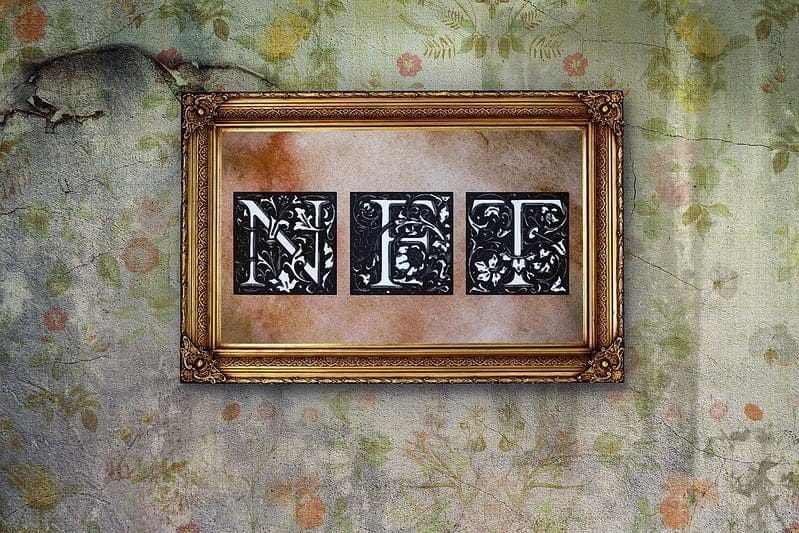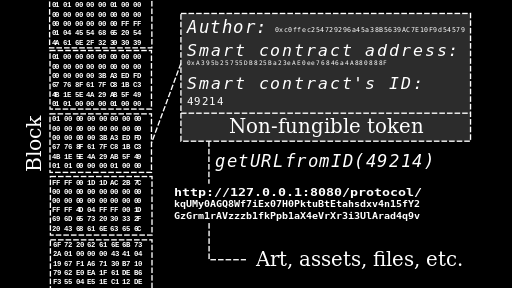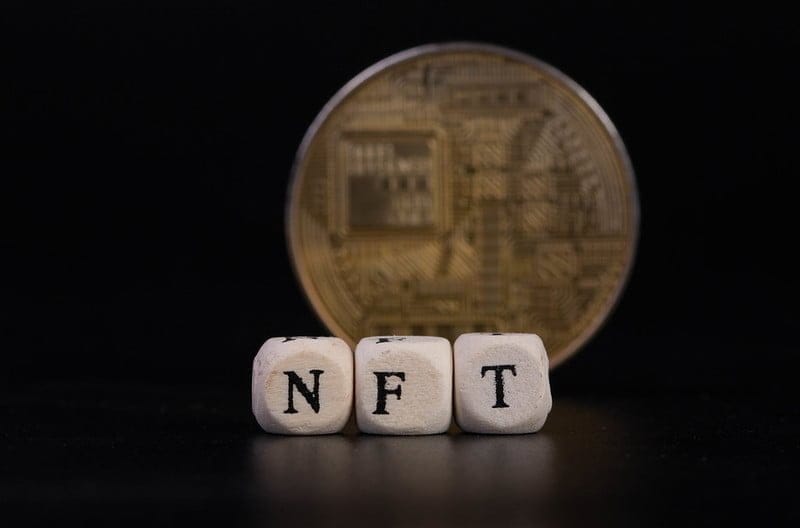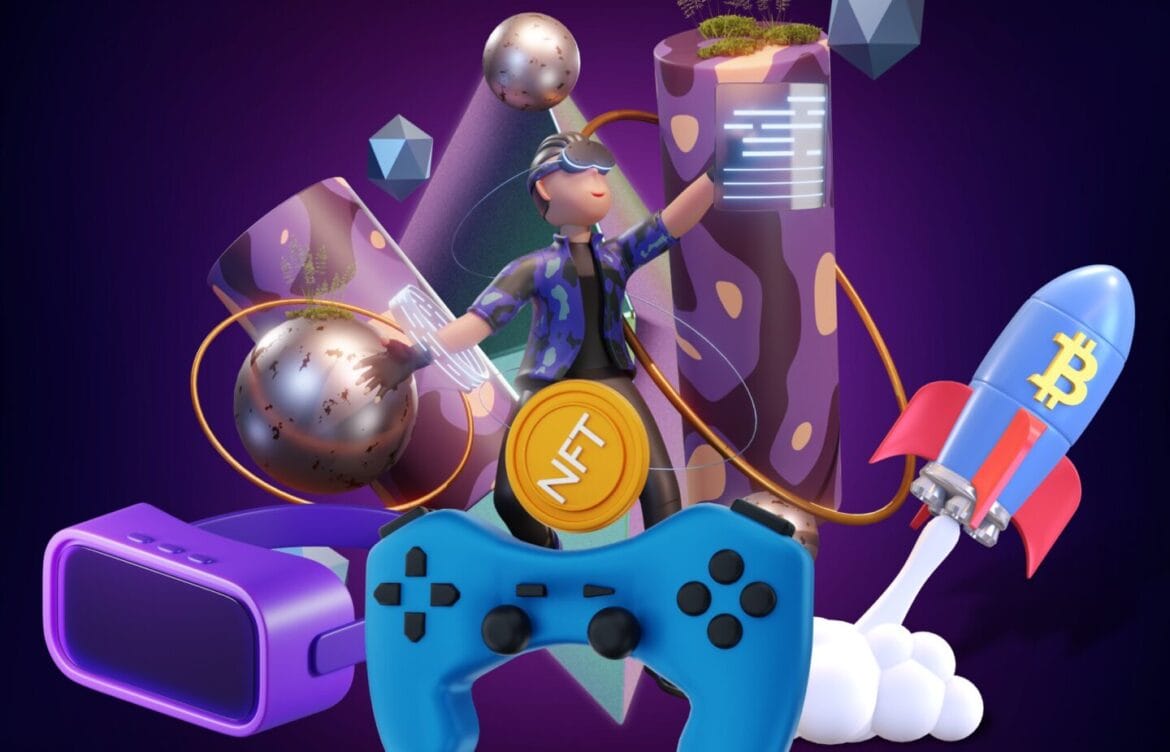A relatively new acronym, NFT is quickly becoming something of a “household name,” so much so that the NFT conversation has recently made its way into our daily MyState MLS water cooler talk. That said, our team thought it pertinent to give an overall overview of NFTs and their positive or negative impact on real estate transactions now and into the future. Our team at MyState MLS took a deep dive into what NFTs are and how they may forever change the real estate industry.
So What Are NFT’s?

Non-fungible Tokens (NFTs) are distinct assets that have been tokenized on a blockchain. They are accompanied by unique ID codes and metadata that distinguish them from others.
NFTs can be exchanged or traded to fiat currencies, various crypto or other NFTs, and their value is dependent on the perception of value that is assigned by the market and by the NFT owner.
How NFTs Help The Real Estate Industry
Utilizing their unique attributes, NFTs act as mediums to transform valuable tangible assets, like real property, into a digital format. This means that real estate properties can start transforming into tokenized assets stored on blockchains.
The idea of putting tokenized real estate on the blockchain is an avenue for buyers to purchase real estate as an NFT anywhere in the globe. The objective is to make use of digital assets’ properties, which include speedy transactions, transparency and the preservation of long-lasting information.
Therefore, this method reduces the cost of international property transactions by removing the traditional process. NFTs give buyers the possibility to buy fractional ownership of property.
How NFTs Are Transforming The Landscape Of Real Estate Transactions
The application of NFTs totally alters how the real estate market is executed today. A few of the ways that NFTs are changing the real Estate sector can be observed below:
Tokenizing Properties
The process of tokenizing properties involves changing the value of tangible property to digital tokens on a blockchain. Digital tokens can represent complete or partial control of the land. They can be purchased, sold or traded through digital platforms, which allows for greater liquidity and easier accessibility to investment.
Fractional Ownership
Tokenization facilitates the possibility of having partial ownership of a property. Instead of buying a complete property, investors can purchase an individual piece of it through an NFT. This method makes the real estate market more accessible and affordable, opening up access to a more significant number of investors, even those who previously were unable to get into the market for real estate.
Streamlined Transactions
NFTs can make real estate transactions more straightforward while reducing the time and expense involved when dealing with conventional transactions. With NFTs, sellers and buyers can communicate directly, eliminating the need for intermediaries like attorneys and banks. This speeds up the closing process and reduces the cost of the transaction.
Transparency And Security
NFTs give greater security and transparency compared to traditional real estate transactions. When creating NFTs, Blockchain technology provides clear and permanent proof of ownership, effectively eliminating the risk of fraud or fake. This increases the security of the transaction. Every participant has an in-depth understanding of the transaction’s origins and the proprietorship.
Access To Global Markets
NFTs enable real estate firms to access international markets previously unattainable. Through NFTs, the purchasing and selling of property can be completed at any time, and transactions can be completed from any place. This improvement in market liquidity can open up new opportunities for real estate companies and investors.
Real Estate Specific Smart Contracts

NFTs are also able to develop smart contracts that are self-contained contracts that seamlessly keep to the terms of the agreement. In real estate property transactions, smart contracts could automate appraisals, property evaluations and title transfers, further streamlining the transaction process.
How To Tokenize Real Estate
The following topics could help you understand how assets are tokenized:
- Learn about blockchain technology: People looking to transform their property into an NFT could begin by ensuring they possess complete knowledge about blockchain technologies and NFTs.
- Due diligence: The buyer must conduct due diligence regarding the property before creating a digital token for the real estate’s value using a Blockchain.
- Get legal advice: Engaging with legal counsel is crucial in navigating the complicated web of compliance and legal issues inherent in blockchain and real estate interplay.
- Platform for tokenization: Leveraging a platform that allows real estate tokenization may simplify the process, providing tools and services for the creation, administration, and trading of real estate-related NFTs. These platforms include DigiShares as well as Propy.
The Benefits Of Tokenizing Real Estate For Buyers And Sellers
The conversion of the actual market for real estate into tokens can bring multiple benefits to everyone involved in the transaction, including the buyers and sellers. These benefits are outlined in greater detail.
Documents Are Secured On The Blockchain
With ownership documents stored by the blockchain, buyers and sellers feel confident about the safety and transparency of every property transaction. Tokenized real estate records are authentic of property ownership and provide the acquisition date.
History Of Property Remains On The Blockchain
Buyers can gain greater insight into the buying process by having access to complete information about every transaction that the property was involved in over time. This can include any recent improvements made to the property and maintenance that the property received.
Trustless Exchanges Of Property
Storing real estate property data on a blockchain is an excellent method of ensuring secure transactions. The information related to the transaction is secure, protected, safe, and long-lasting.
Reduction Of Bureaucratic Paperwork
The process follows a simplified approach that eliminates the need for paperwork or the significant costs associated with traditional transactions. All information is available through the blockchain in just two clicks.
Transaction Speed Is Optimized
Transferring ownership is significantly speedier and starkly contrasted to traditional methods that see transactions take weeks or even months, depending on the banks’ involvement and their country’s location. However, cryptocurrency payments are instantaneous, and once an agreement has been reached between buyer and seller, buyers will be required to transfer the cryptocurrency value in the bank account in the direction of their seller. Thus, tokenizing real estate can cut the time needed to buy it and result in a purchase completed in just a few minutes, dependent on network traffic.
Benefits For Real Estate Agents Adopting Real Estate NFTs
Innovative Ways To Transfer Homeownership
In embracing tokenized real estate, realtors can offer protection and transparency for customers and facilitate document sharing. With their experience and knowledge, they can use this innovative way to market properties to younger clients, possibly leading to increased sales and commissions.
Gain Greater Trust From Clients
Using the blockchain every transaction is securely stored on the blockchain to allow for quick access and total transparency. Thus, agents can be more trusted by their customers as they can be sure that nobody is interfering with or manipulating data.
Simplify Property Transfers
Through tokenizing, property agents can dramatically simplify the transfer of ownership rights to an asset. This could mean less time for the realtor or offers to sell the property.
Open Up New Opportunities
Realtors could increase the reach of their agents across the globe by allowing buyers and sellers to interact with each other regardless of their location or border. This could result in greater commissions and sales.
Disadvantages Of Tokenized Real Estate
Government Acceptance & Regulatory Compliance
For NFT real estate to become a norm, internationalization and standardization are essential, so the concept will require approval from the government. This also includes reaching a level of alignment with the government’s regulations and obtaining acceptance for blockchain as legally acceptable records, which is one of the biggest obstacles.
Complexity And Understanding
The idea of tokenizing real estate is new and can be confusing. It can lead to misunderstanding and confusion. Insufficient understanding of the concept could hinder acceptance and dissuade potential investors.
Technology Risks
The threat of cyber-attacks and cyber-attacks is inherent in every blockchain-based solution. Loss of keys to private accounts could cause the loss of assets forever.
Valuation Challenges
Determining the worth of a tokenized property isn’t easy because of the inherent volatility in the cryptocurrency market. The fluctuating value of tokens can cause risk to sellers and investors. However, stablecoins can help with the problem of crypto price volatility.
Integration With Traditional Systems
Integration of tokenized assets into traditional real estate practices and systems isn’t easy and could challenge well-established players within the real estate industry.
Fraud Risks
The likelihood of fraud and scams is more pronounced, particularly in light of the initial stage of adopting tokenization in real estate.
Tax Implications
The tax implications of purchasing, selling or holding real estate tokenized remain unclear in many places, which could lead to unexpected tax obligations.
Overall Conclusion & FAQs

As the world continues to shift towards a digital age, NFT-based properties will be the norm in line with the needs and desires of Gen Z and Millennial generation, who value security and are well-versed in blockchain technology. This unique way of dealing with real estate utilizes smart contracts to guarantee safe, secure transactions that are tamper-proof and provide a digitally efficient purchasing experience that is in line with the cashless transactions of the younger generation.
By storing purchases on an immutable blockchain, buyers can easily access the legal documents for ownership and participate in real estate investment worldwide, which will meet the requirements of the increasing numbers of digital nomads and remote workers who want quick and simple investment strategies.
How do NFTs transform real property transactions?
NFTs are changing how we buy real estate, providing property tokenization, which ensures safe, transparent and efficient transactions, facilitating the globalization of fractional ownership and making it easier to avoid traditional problems.
What advantages can tokenized real estate provide to sellers and buyers?
Tokenization offers the security of transparency and fast transactions, less paperwork and access to comprehensive information about the property, enhancing the purchase and sale experience.
How can real estate agents profit from NFTs?
Agents can benefit from NFTs to provide innovative, safe, transparent, and secure property transfers, increase client confidence, streamline ownership transfers, and explore potential markets in the international market.
What are the challenges tokenized real estate has to face?
Problems include regulatory compliance and acceptance by the government of technological complexity, conceptual risk, integration with conventional systems, fraud potential and uncertain tax implications.
